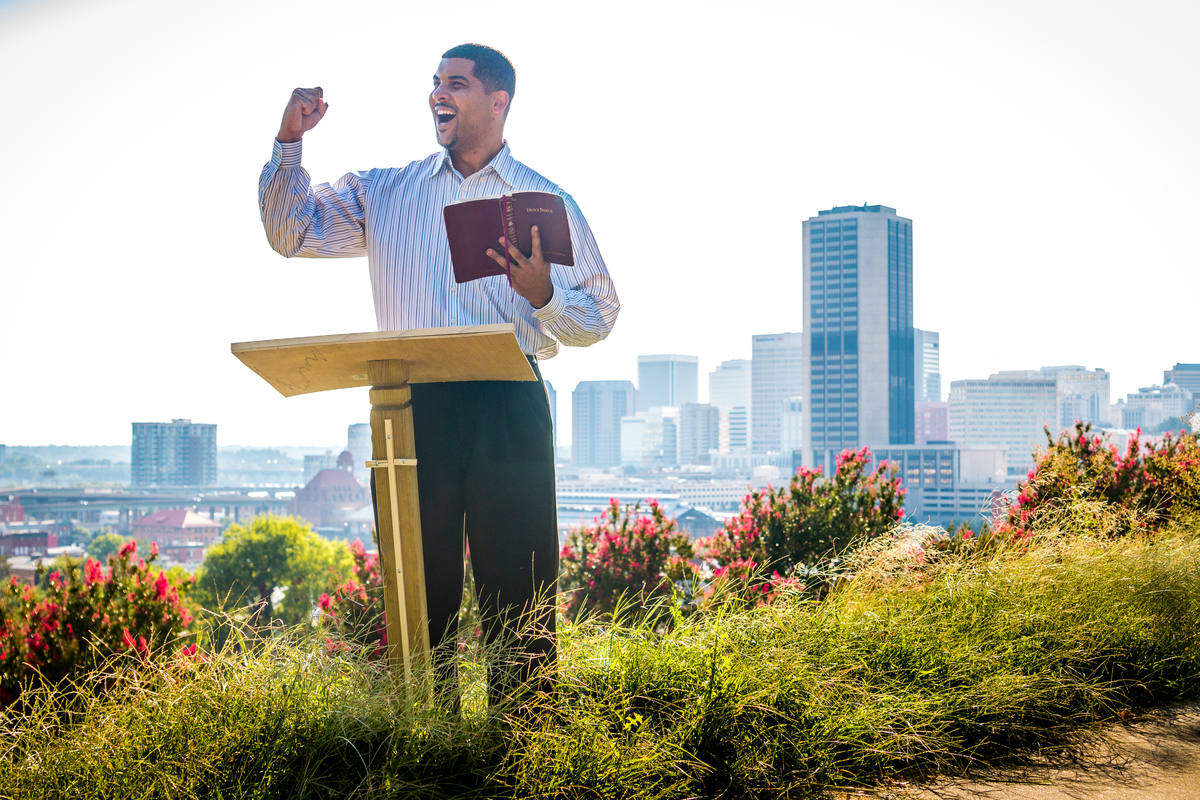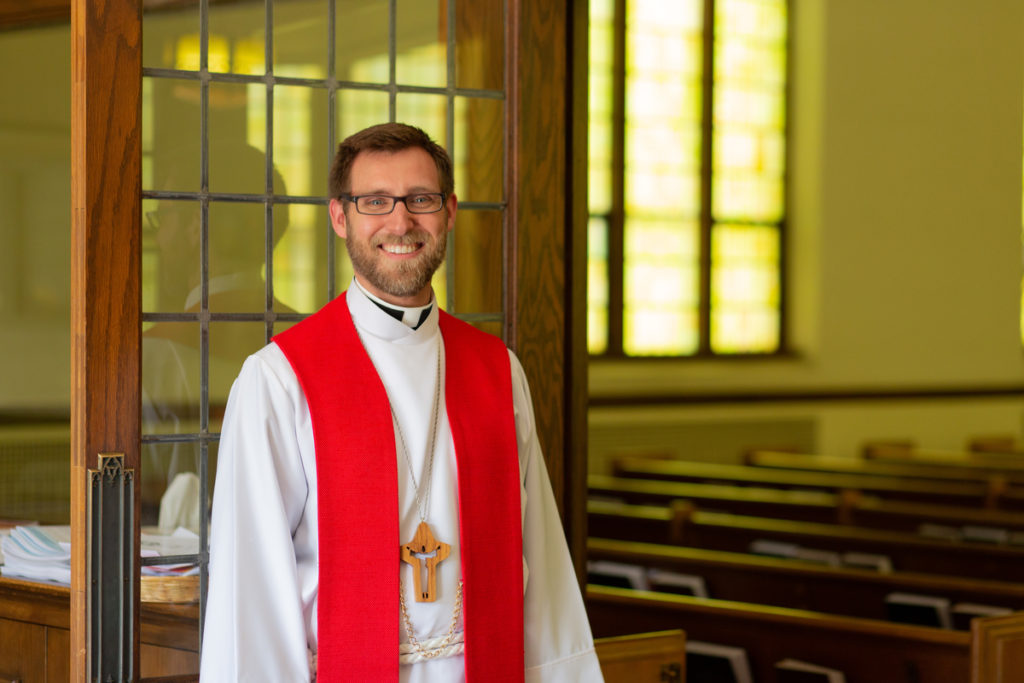I was going to write about the challenge of discipling online worshipers. However, that topic will need to again wait for the next issue of this newsletter. Why? Because something quite urgent has come to my attention. It was a June 2nd (2021) fundraising letter from North American Lutheran Seminary, the seminary for the North American Lutheran Church. In that letter was this statement from the seminary President, Dr. Eric Riesen: “…Over the next ten years more than 70 percent of our current NALC pastors will retire.”
Reflect on the implications of that statement for just a moment. And keep in mind that this forecast is undoubtedly reflective of the clergy supply crisis facing not just the NALC, but the LCMC and ELCA as well.
I am convinced there are three converging factors which will create a “perfect storm” when it comes to the available supply of pastors for American churches.
One factor is the significant number of current, working pastors who have already reached or surpassed retirement age. We have not yet reached the peak of the exodus of pastors from full-time ministry for a couple of reasons: The pandemic; and the fact that some of these pastors just want to “keep going” despite their age. But the aging process waits for no one, including clergy. Like the full-time pastor who called me to talk about when he might want to start planning for his retirement. His age? 81 years old! And how does the pandemic impact retirements? Some pastors, understandably, didn’t want to leave their congregations until the worst of the pandemic was behind them. However, as we begin to enter a post-Covid environment many of these pastors are now about to retire.
A second factor contributing to an increasing shortage of pastors is decreasing seminary enrollment. This unfortunate cross-denominational trend has been going on for years, if not decades. Just one example: In that fundraising letter from North American Lutheran Seminary that I mentioned there was a photograph of the graduating class of 2021. Just four students.
A third factor in this developing shortage of pastors is clergy burnout. Thom Rainer’s coaching ministry, Church Answers, conducted a cross-denominational survey of over one thousand pastors just last fall. Close to 80% indicated they were thinking of quitting. That’s right, 80%. No doubt some of this was due to the multiple ways the pandemic has contributed to the stress of church ministry. However, the trend of increasing pastor burnout preceded Covid and will undoubtedly persist post-Covid. Kate Shellnutt, in the July/August (2021) issue of Christianity Today, writes: “Across the country, pastors…have ushered weary congregants through virtual worship setups, lonely hospital stays, funerals, job losses, intense political tensions, and relentless debates over pandemic precautions.” She continues, “During the first months of the year, fewer than half of regular churchgoers in the US made it to an in-person service, according to the Pew Research Center, though more than three-quarters said their churches had reopened.”
All three of these factors are converging in the context of American congregations which are, more often than not, dealing with some level of institutional decline. Be it an aging membership, declining worship attendance, or far fewer baptisms, most churches are facing a decidedly uncertain future. Add the developing clergy shortage and the word “crisis” seems more than apt. The Body of Christ will, of course, endure. However, if we don’t confront this crisis in a proactive way a great many people will never be reached with the Good News.
Added to all these ministry challenges, American churches have, for generations, developed an unhealthy dependence on ordained, seminary-trained clergy to lead and serve their congregations. And as I continue, keep in mind that churches led by seminary-trained, ordained clergy was not the New Testament model for local faith communities. (1st Peter 2:4-10)
Consider, with me, one possible scenario where a hypothetical LCMC congregation makes the decision—after a frustrating and unsuccessful search for a new, ordained pastor—to embrace a ministry model that aspires, out of necessity, to move “beyond clergy”.
This hypothetical church is Grace Lutheran, and it is located in a small city in the Midwest. Grace’s call committee was organized in the summer of 2021; about the time that the pandemic was finally winding down, and shortly after their pastor of 18 years announced his retirement.
Since Grace was a healthy and conflict-free congregation the call committee was confident they would be able to find and call the pastor “God had in mind” for their church. Mixed with the committee’s initial optimism there was, however, some anxiety. Grace Lutheran’s post-Covid weekly attendance in the fall of 2021 had shrunk to 85 compared to a pre-Covid 2019 attendance average of over 125. But the call committee forged ahead; confident that part of the attendance losses were simply due to their pastor’s retirement. Surely the “right” new pastor would help rebuild their attendance back to at least what it was in 2019.
However, the search process dragged on into the fall of 2022. The call committee in particular and the members in general were becoming demoralized. There was one brief period of optimism when the committee extended a call to an applicant they were truly excited about. But at the last minute this candidate decided to accept one of the other two calls he was “sitting on.”
It was after going through this frustrating search for over a year that the committee decided to engage the services of (you guessed it) a Congregations in Transition coach. This coach suggested a new, some would say even radical, strategy. While continuing their search for an ordained pastor the coach recommended that Grace Lutheran consider recruiting, training and hiring a congregational member to serve as their minister. Here were the steps their coach outlined for the call committee and church council:
1. First there was the matter of identifying the right person from among their members. The question posed by the coach was, “Does a particular male or female member come to mind as someone God might be ready to call—whether part-time or full-time—to be a minister here at Grace?” It would need to be someone who had the necessary gifts, faith, maturity, and integrity to fill such an important role. Also, this individual would need to have already established a reputation, among the members, of being a faithful and trustworthy congregational leader. With these qualifications in mind the call committee and council members were asked to pray and reflect on this question. After an extended time of prayer and reflection (weeks perhaps?) there was the difficult task of coming to a consensus as to which person would be approached. This took place in a (one-day) retreat setting.
2. The next step—once a consensus was reached—was to approach the “candidate”. The question asked of this individual was this: Would he or she be willing to eventually accept such a paid ministry position if the congregation agreed to pay the cost of online ministry training? In addition to this training the future minister would be encouraged to establish a mentoring relationship with an ordained pastor. This could either be a CiT coach or a pastor living and serving within driving distance of Grace Lutheran.
3. Once this member agrees to pursue ministry training the church council and congregation would make this arrangement both public and official, commissioning (and celebrating with) this “minister-in-training” at a worship service.
4. In consultation with congregational leaders the chosen future minister would then decide on an appropriate online ministry training program. Possibilities considered might include St. Paul Seminary (St. Paul, Minnesota), the Institute of Lutheran Theology (Brookings, South Dakota), and North American Lutheran Seminary (Ambridge, Pennsylvania).
Note: If the person chosen is unable to commit to eventually work as a full-time minister the congregation should then be open to negotiating a worker-priest contract where this individual would be part-time and bi-vocational. It is imperative that the “right” person not be passed over simply because he/she cannot be a full-time minister.
The above hypothetical scenario does not by any means address all of the details that would need to be worked out by the leaders of a congregation like Grace Lutheran. These include the eventual job description, compensation, and whether this member-minister would be pursuing formal ordination (or not). However, this entire process could be monitored and, to an extent, led by a Congregations in Transition coach. By all means email me if you have any questions.
Grace and peace,
Dr. Don Brandt
503-559-2034



















